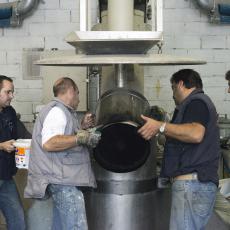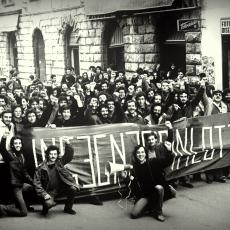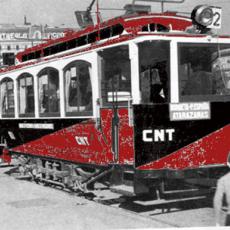Sat, 02/01/16
Socially Useful Production
Worker-controlled companies often apply the principle "production for use, not for profit", using their existing skills and machinery to switch production towards the fulfilling of human needs and away from environmentally and socially hazardous products.
Topic:
Get involved!
Help us expand the Workers Control Archive!
If you think you have some interesting text or content is missing:
Get in contact ›››
Recommended articles
|
Against the imminent threat of liquidation, the workers of VIOME appeal for international solidarity.
|
|
In Argentina, the government attempted to ‘institutionalise’ the occupied factories, de- politicising the radical aspects of workers’ actions in exchange for financial and technical assistance.
|
|
Some currents argue that the experience of small-scale self-management under capitalism is useful preparation. However, self-management is impossible without real socialist democracy.
|
|
These theses written in the context of the 1970s 'autonomia operaia' in Italy intend to initiate a debate on workers’ control of the factories as a 'democratic and peaceful' road to socialism.
|
|
The history of worker management of Barcelona's transit system during the revolution and civil war is an illustration of the ability of workers to directly manage the industries where they work.
|






Comments
Post new comment